The Palestinian problem
When left-liberal circles discuss the tragic situation of Palestinian refugees, they primarily refer to the conflict between the Palestinian Authority and Israel. For the past 76 years, Palestinians and Israelis have failed to find a solution to this conflict. The international community has long considered this problem to be unsolvable. However, the issue of Palestinian refugees extends beyond the confrontation with the Jewish state.
However, the list of countries in which Palestinians have experienced and continue to experience suffering is extensive, and it primarily includes Arab nations. But this list is hardly talked about, because it does not fit into the fashionable modern pro-Palestinian narrative.
Here is a non-exhaustive list of discrimination, persecution and mistreatment inflicted on Palestinians by Arab countries since 1948.
- Palestinians are not allowed to become citizens of any Arab country, except in some special cases in Jordan. This ban was introduced by the Arab League in 1959 and is intended to “preserve the Palestinian identity”.
- Palestinians who lost their Jordanian nationality cannot regain it.
- They are also not allowed to travel freely within the Arab world, as the Palestinian Authority issues them with “travel documents” that are only recognized by a limited number of countries.
- Those residing in Muslim countries lack the right to vote or stand for office in national elections.
Children of Palestinian parents are not granted the nationality of their place of birth, in violation of Article 7 of the UN Convention on the Rights of the Child. The UN has refused to condemn these violations or demand respect for them.Art. 7: The newborn will be registered immediately after birth and will have the rights to a name, nationality, and, to the extent possible, the rights to know and be cared for by their parents.
In Jordan:
1967: After the 6-Day War, Jordan denied citizenship to residents of Gaza who had arrived. Today, the 165,000 Palestinians living in Jordan are not eligible to become citizens and are not entitled to any assistance or benefits that Jordanians enjoy.
1970: Between 3,500 and 5,000 Palestinians were killed and 20,000 were forced to leave their homes during events known as “Black September.” Their camps were destroyed.
1988: After Palestinians declared “independence” on the left bank of the Jordan River, Jordan revoked the nationality of millions of them. The decision was made in their best interests.
2010: Jordan continued revoking the nationality of thousands of Palestinians.
2012: Jordan enacted an electoral law that limited the number of Palestinians eligible to serve in parliament to less than 10%.
2013: Jordan placed Palestinian refugees from Syria in separate camps, where they were not allowed to leave. This also blocked the entry of several hundred thousand Palestinian refugees and sent them back to a dangerous situation in Syria.
2014: Palestinians with Jordanian citizenship did not have the same rights as Jordanians in terms of the army, scholarships, and university admissions, among other things.
In Egypt:
1948: Egypt locked all Palestinian refugees in camps, instead of accepting them into Egyptian society and expelled the men to return and fight in Palestine.
1949: Palestinians were expelled from Egyptian camps and sent to Gaza, leaving very few Palestinian Arabs in Egypt.
1950: Egypt refused any presence of the UNRWA (United Nations Organization reserved exclusively for Palestinian refugees), relegating them to Gaza.
1949-1956: Palestinians in Egypt were no longer allowed to work or attend school.
2011: A new law passed that states “all Egyptian mothers can grant Egyptian nationality to their children born to a foreign father, except for Palestinians.” On Arab Mothers’ Day (March 21), hundreds of Egyptian mothers married to Palestinians gathered in Cairo’s Tahrir Square demanding citizenship for their children.
2013: Hundreds of Palestinian refugees from Syria trying to enter Egypt were imprisoned.2013 to present: The Rafah border between Gaza and Egypt has been closed, creating an open-air prison for 1.7 million people from Gaza. Even patients who need to spend a short time in hospitals are not allowed to pass through.
In Lebanon:
1950-1958: Only travel documents were provided to Palestinians wishing to leave Lebanon.
1962: Palestinians were registered as “foreigners”:
– 73 job categories were prohibited until 2010.
– Since 2010, the number of prohibited professions decreased to 50.
– Palestinians still cannot work as physicists, journalists, pharmacists, or lawyers.
– Martial law in Palestinian refugee camps prohibited building houses, owning property, or repairing homes.
– The army controlled entry and exit, prohibiting any movement outside camps.
– Palestinian “foreigners” were not allowed to attend schools of their choice.
– They were not allowed to live outside camps, and expanding them was prohibited. As a result, camp populations tripled.
– Palestinians did not have the right to form associations.
During the civil war (1975-1978), at least 5,000 Palestinians lost their lives.1985-1988: Several thousand Palestinians were killed during the “camp war”.
1995: A law was passed prohibiting Palestinians from entering the country without a visa, and no visas were granted. Palestinians who were expelled from Gulf States were unable to return to Lebanon (the law was later repealed in 1999).
2005: Specific laws were enacted prohibiting “foreigners” (Palestinians) from becoming property owners. Those who had owned property prior to the enactment of the law were unable to pass it on to their children.
2007: 31,000 Palestinians became homeless after the army destroyed the Nahr el Bared camp.
2013: Syrian Palestinian refugees received different treatment compared to other Syrian refugees in Lebanon. They were offered temporary resident visas at exorbitant prices that they could not afford, making them immediately illegal immigrants.
Lebanon began refusing entry to Palestinian refugees from Syria at the border while accepting Syrian refugees.
In Kuwait:
In 1991, 400,000 Palestinians were harassed and expelled from the country.
In Libya:
1994-1995: 30,000 Palestinian refugees were expelled, their homes were confiscated, and they were fired from their jobs.
Arab countries refused to accept these new refugees, leaving hundreds stranded in the desert or at sea. Libya eventually allowed a number to stay, but continued to threaten to expel them again. Eventually, 15,000 Palestinians with travel documents were allowed to emigrate to Arab, Gulf, and European countries.
2011: Palestinians had to pay a special tax of $1,550.
2012: Many Palestinians lost their homes which were claimed by Libyan residents during the chaos of the revolution and collapse of the justice system.
In Iraq:
Early in the 1950s, Palestinian workers were expelled from Iraq at the same time as Saudi Arabians and Libyans.
In 2005, after the fall of Saddam Hussein, armed groups kidnapped, took hostage, killed, and tortured Palestinians in Iraq. Politicians made fun of them in public statements, and about 15,000 were expelled from the country. Thousands of Palestinians remained stranded in camps in the desert between Iraq and Syria, as no Arab country would allow them entry.
In Qatar:
In 1994, the country refused to issue work visas for Palestinians.
In Syria:
In Syria, Palestinians were not allowed to vote or run in local elections from 1970 until 2008. They were also not allowed to own farmland or more than one piece of property.
From 2012 until now, around 2,000 Palestinians have died in the civil war, and about 50 have died of starvation after rebel groups cut off water and food supplies at the Yarmouk refugee camp.

We also recommend reading:
The problem of trust, Does Tit For Tat Work In The Middle East?, Herta Muller — OPEN LETTER.

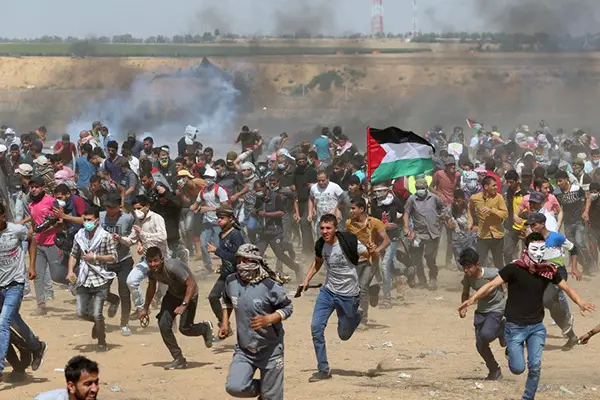



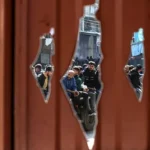

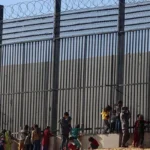
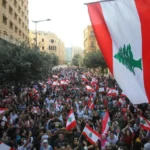

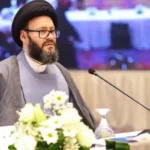
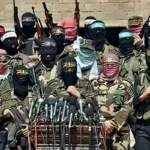
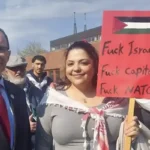

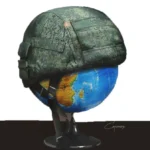
Leave a Reply